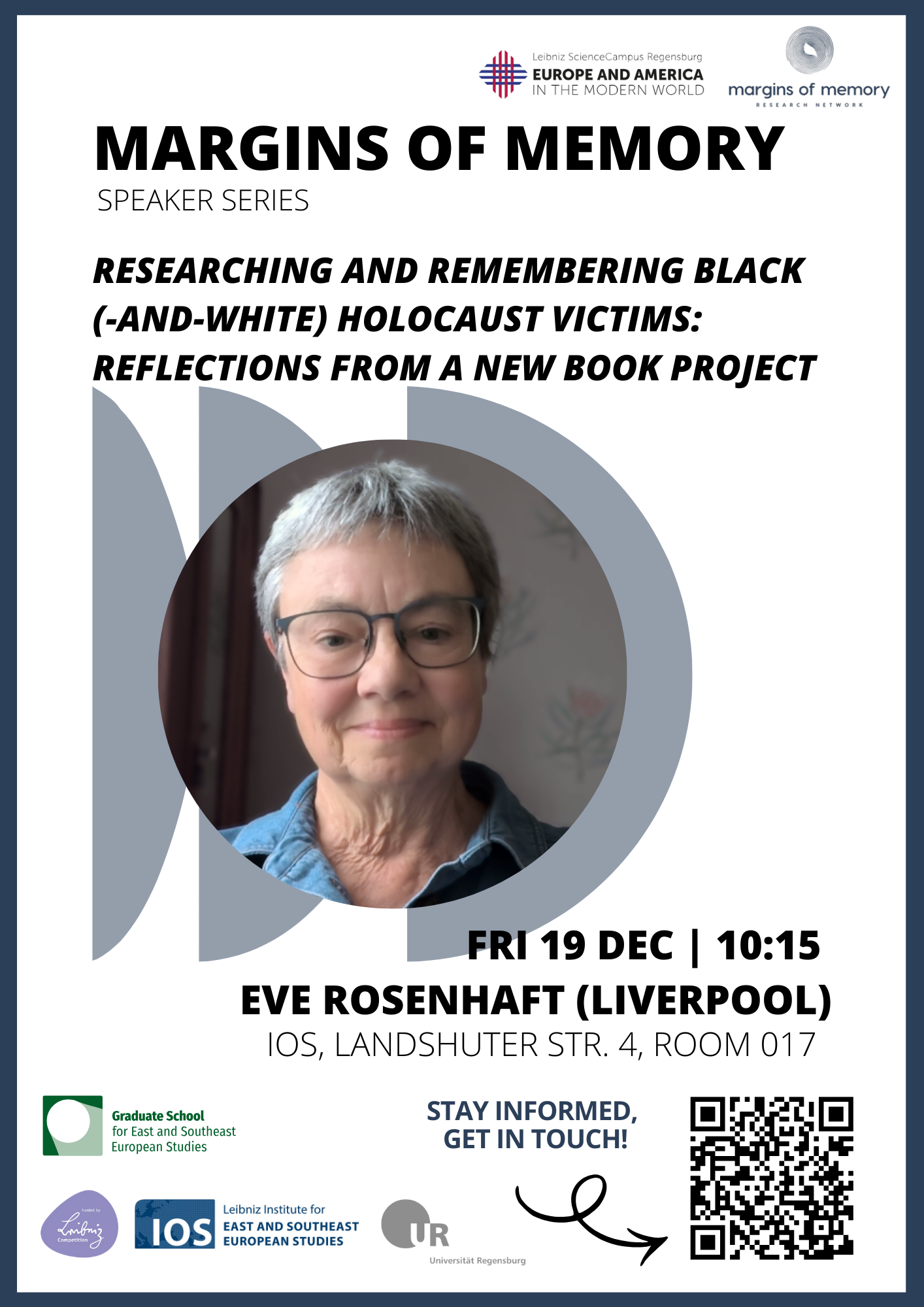Speaker Series | Eve Rosenhaft (Liverpool) | Researching and remembering Black(-and-white) Holocaust victims: Reflections from a new book project
When? Friday, 19 December. 10:15.
Where? Room 017, Landshuter Str. 4 (IOS / Graduate School)
This event is part of the Margins of Memory Speaker Series, organized by the Early Career Research Network supported by the Leibniz ScienceCampus, Volha Bartash and Tatiana Klepikova. This session takes place in cooperation with the Graduate School for East and Southeast European Studies.
This event is part of the Margins of Memory Speaker Series, which runs throughout the winter semester 2025/26. It is organized by the co-spokespeople of the Margins of Memory Early Career Research Network supported by the ScienceCampus. Find the full programme here
Abstract | In this talk, Eve Rosenhaft introduces a new book, Ronald Roberts, the Lad Who Outwitted The Nazis: From Weimar Germany to Windrush Britain (Peter Lang – Reimagining Black Europe). The book documents the life of one of hundreds of men and women of colour – most of dual heritage - who came of age in Nazi Germany and suffered harassment and persecution because of their ‘race’. The talk will situate a discussion of the particularities of Ronald Roberts’ story and the challenges of producing the book in an account of the contours of the Black experience in National Socialism and the rhythms of research and commemoration, which began in the 1980s but have accelerated in this century.
Bio | Eve Rosenhaft: I am a historian of modern Germany. I grew up in New York, and studied in Montreal and at King's College Cambridge before coming to Liverpool. I have held fellowships and visiting professorships in Britain (King's College Cambridge), the United States (US Holocaust Memorial Museum Center for Advanced Holocaust Studies), Germany (Free University Berlin, Max-Planck-Institut für Geschichtswissenschaft Göttingen, University of Bochum, Herzog-August Bibliothek Wolfenbüttel), and South Korea (Sogang University, Seoul).
My earliest research was in German labour and gender history and the history of youth and social policy. My most recent work has has three strands: Romani Studies, with particular reference to the history of German Sinti and Roma and their experiences in the Holocaust; Black people in German history; and middle-class culture, gender and finance in 18th-century Germany. In 18th-century studies, I have moved from unearthing the origins of life insurance to exploring what Germans knew about stocks and shares in the early days of global capitalism to studying the entanglement of Germans in the Atlantic slave economy.
My research in Romani, Black and Holocaust studies is linked with a personal commitment to outreach and knowledge exchange, which has involved the development of a Travelling Exhibition on the Nazi Persecution of Sinti and Roma and advisory roles with the Wiener Holocaust Library, the Imperial War Museum London and the United States Holocaust Memorial Museum. It also involves me in collaborations with colleagues in France, Germany, the Netherlands, Scandinavia, the US and South Korea.

